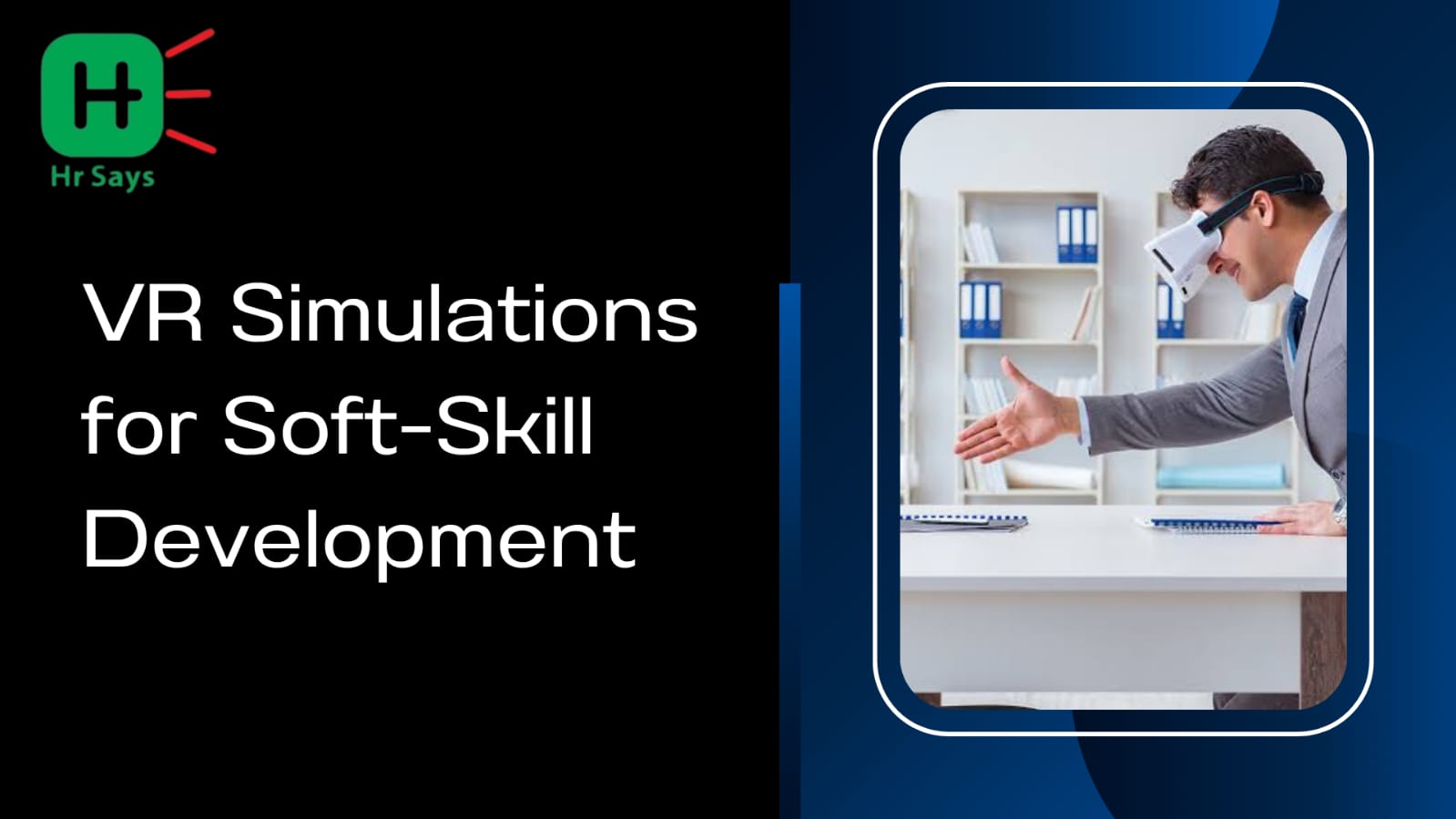Can leadership be practiced before it’s needed? Can empathy be learned without emotional risk? VR says yes. Across industries, professionals are stepping into simulations—not just to observe, but to become better communicators, listeners, and decision-makers. And it’s not fiction anymore.
What VR Soft-Skill Training Looks Like
Headsets go on. You're in a boardroom. A co-worker challenges your idea. Your voice trembles. But this is not the actual picture this is a simulation. It ends. You review your tone, your body language, your response time. You go again.
In virtual scenarios, learners engage with:
● Hard/difficult talking with friends or bosses
● Conflict resolution
● Public speaking under pressure
● Active listening and the emotional intelligence
● Cross-cultural communication
These are not passive experiences. The brain responds to VR like it’s real life. Mistakes feel personal—but safe.
Why Soft Skills Need a New Medium
Soft skills are fragile. They don’t thrive in classrooms or PDFs. They need emotion, nuance, context. VR brings these to the table.
Traditional training struggles with:
● Non availability of real-time pressure
● The one-size-fits-all situations that are generic in nature
● Forgettable theory
● No safe space to fail
In contrast, VR offers:
● Repeatable practice
● Adaptive feedback
● Privacy during failure
● Realistic pressure
No two learners react the same. That’s the point.
Where It Works—and Where It Doesn’t
In leadership coaching? It helps. In customer service simulations? It clicks. For building cultural
awareness? It’s promising.
But not every skill fits the headset. Warmth can’t be fully rendered. Accents, tone, real-time
unpredictability—still limited. Hardware is costly. And adoption isn’t smooth everywhere.
It’s also easy to overestimate what a simulation can “fix.” Empathy doesn’t upload. It builds
slowly—even in VR.
The Hidden Value
What’s being learned is subtle. People don’t just speak better—they pause more. They interrupt
less. They walk into meetings aware of posture and tone. Soft skills aren’t about charm. They’re
about presence.
And presence can be trained—if repeated enough, with the right cues. VR makes those cues
possible.
Conclusion
Virtual reality won’t replace human interaction. It won’t teach kindness or replace instinct. But
it offers something training manuals don’t: Immersion. A safe mirror.
Soft-skill development has always been a slow climb. VR doesn’t skip the climb. It just lets you
rehearse the fall.
And that alone might be enough to matter.

 VR is not a tool of only the gaming world. It’s being quietly used to build something harder to teach—soft skills. Confidence, communication, empathy. All in a headset. A silent shift is underway.
VR is not a tool of only the gaming world. It’s being quietly used to build something harder to teach—soft skills. Confidence, communication, empathy. All in a headset. A silent shift is underway.








.jpeg)
.jpeg)

.jpeg)





.jpeg)



.jpeg)

.jpeg)



